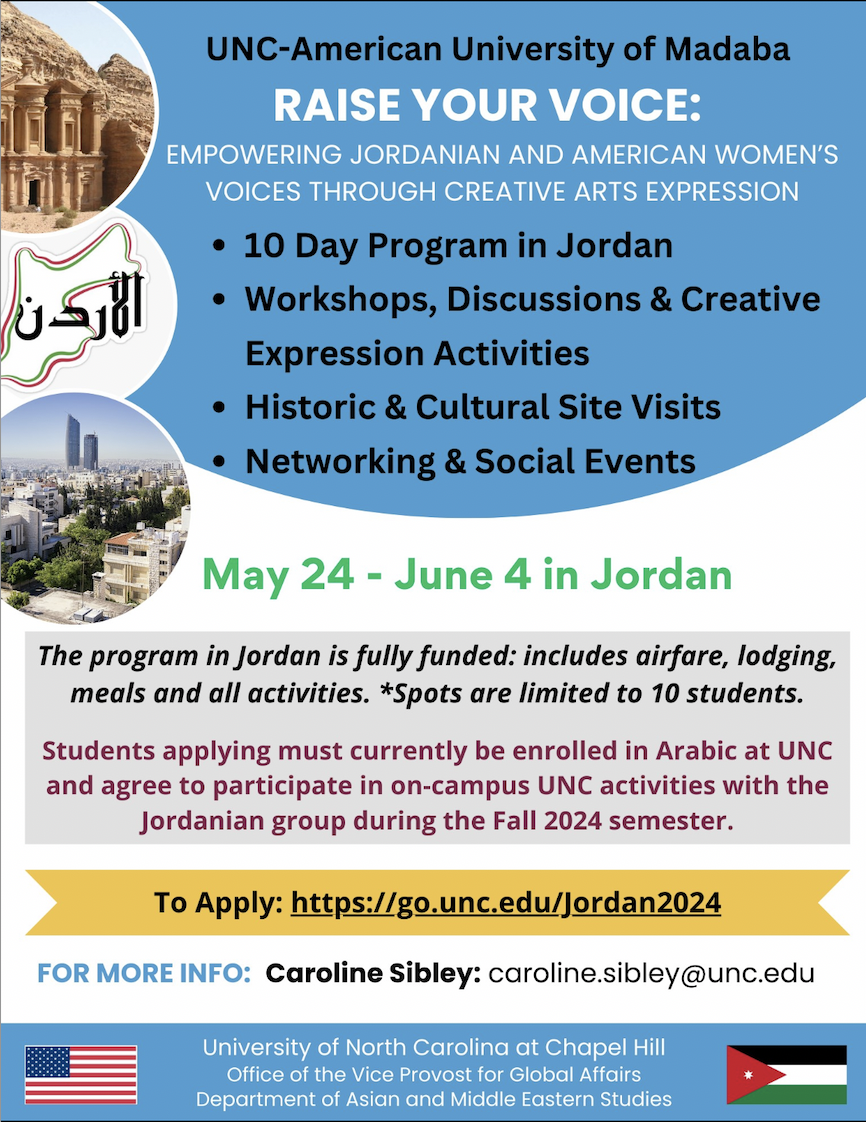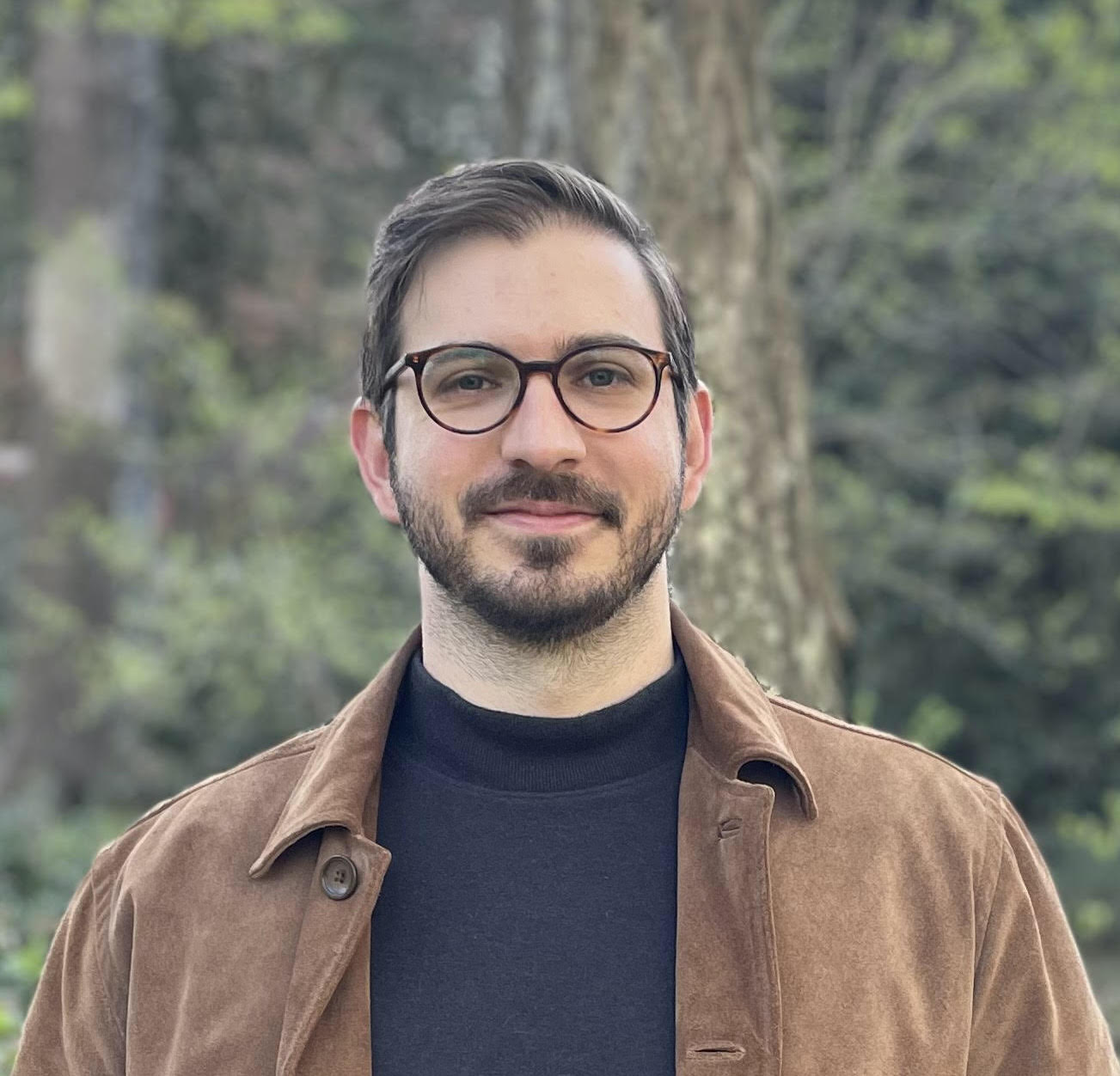 The Center for Middle East and Islamic Studies is happy to welcome Dr. Ana Vinea as a CMEIS member. Dr. Vinea joined UNC in January 2020 and is currently teaching a first year seminar on ‘Popular Culture in the Arab World’ and an undergraduate class, ‘Medicine and Modernity in the Arab World,’ in the Department of Asian and Middle Eastern Studies. Her interest in the Arab Culture comes from the time she spent in Cairo and exploring the rest of Egypt. Dr. Vinea initially had gone to Cairo on a one-year fellowship to study Islamic Art and during this time, her interests shifted towards anthropology.
The Center for Middle East and Islamic Studies is happy to welcome Dr. Ana Vinea as a CMEIS member. Dr. Vinea joined UNC in January 2020 and is currently teaching a first year seminar on ‘Popular Culture in the Arab World’ and an undergraduate class, ‘Medicine and Modernity in the Arab World,’ in the Department of Asian and Middle Eastern Studies. Her interest in the Arab Culture comes from the time she spent in Cairo and exploring the rest of Egypt. Dr. Vinea initially had gone to Cairo on a one-year fellowship to study Islamic Art and during this time, her interests shifted towards anthropology.
Dr. Vinea is currently working on a book project entitled Healing Dilemmas: Islam, Psychiatry, and Affliction in Egypt. Her next project, tentatively titled Tramadol: A Pill for Counter-Revolutionary Times, will explore the experiences of opiate addiction among low-income urban populations in Cairo as well as the types of medical and legal interventions that exist since the 2011 uprisings.
Dr. Vinea has interest in both medical practices and popular/visual culture and that her future work will combine both of these passions. She hopes to become more immersed in the Chapel Hill experience, such as meeting more faculty members and students. She also hopes to teach her students how to use a variety of sources to identify wider transformation that the Middle East has gone through in the last three centuries. Dr. Vinea also currently serves on the Duke-UNC Consortium for Middle East Studies executive committee.
Interview with Dr. Vinea
- Where does your personal interest in Arab Culture stem from?
Right after I finished my B.A., which was in Art History, I received a fellowship to spend one year in Cairo studying Islamic art. While I had a moderate interest in this topic, mostly I wanted to experience a new place, away from home and the more familiar Western Europe. Truth be told, I didn’t really study Islamic art during that year, my interests were already shifting towards anthropology. Instead, I traveled all over Egypt and enjoyed exploring Cairo. Looking back, that year marks the beginning of my interest in Arab cultures and societies.
- What do you hope to accomplish with the course Arab 150, Introduction to Arab Culture?
Arab 150 is designed to offer students an introduction to the Arab world through the lens of culture understood both as a way of life and as artistic production. In the class, students use a variety of sources such as histories, ethnographies, films, music, memoirs, and novels to explore how Arab cultures are shaped and reflect the wider transformations the region went through beginning with the 19th century to the present.
- What does your new research project, examining opiate addiction in post-Arab Spring Egypt, seek to answer?
In this new project, that I tentatively call Tramadol: A Pill for Counter-Revolutionary Times, I aim to ethnographically explore experiences of opiate addiction among low-income urban population in Cairo and the types of medical and legal interventions that are emerging to address the rising addiction rates in the aftermath of the 2011 uprising. I am particularly interested in approaching addiction as a form of embodied critique of sociopolitical conditions and as the target of a biopolitics of care that fuses medicine and religion.
- Having been at UNC for a little less than a year, what have you enjoyed most?
Meeting people, both faculty members and UNC staff and students. Of course, having arrived in January 2020, I only got to enjoy meeting people face-to-face for about two months before we were all thrown into Zoom universe, but I continue to take pleasure in meeting people in this format as well.
- What other topics inspire you for future research?
My research and teaching interests run on two tracks: one has to do with medical practices and the second with questions of popular and visual cultures.
Abdulrahman Sarsour, Class of ‘24





